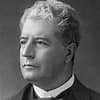
How did Genghis Khan treat his soldiers?
Genghis Khan, the legendary Mongol conqueror, had a unique approach for his time when it came to treating his soldiers. Known for his strategic brilliance and military prowess, Khan understood the importance of a strong and loyal army in his quest to build the largest empire in history. So how did he treat his soldiers?
First and foremost, Genghis Khan believed in meritocracy. He valued skill, loyalty, and bravery above all else. Regardless of their background or social status, anyone who demonstrated these qualities had the opportunity to rise through the ranks of his army. This approach fostered a sense of unity and purpose among his soldiers, as they knew that their achievements would be rewarded.
Khan was also an astute observer of human nature. He recognized that soldiers needed to be motivated and inspired to fight with unwavering dedication. To achieve this, he led by example. Genghis Khan was renowned for his courage on the battlefield, often placing himself at the forefront of his troops during crucial engagements. This not only boosted morale but also instilled a sense of camaraderie and trust among his soldiers.
In addition to leading from the front, Khan took great care of his troops’ physical well-being. He ensured that his soldiers were adequately fed, equipped, and cared for. The Mongol army was known for its skilled horsemen, and Khan prioritized the breeding and training of horses to provide his soldiers with superior mounts. This gave them a significant advantage in maneuverability and speed during battles.
Furthermore, Genghis Khan implemented a system of rewards and recognition for valorous acts. Soldiers who displayed exceptional bravery or achieved notable successes on the battlefield were given honors, titles, and even land. This not only motivated his soldiers to excel but also created a sense of pride and camaraderie within the ranks.
However, Khan was also a strict disciplinarian. He demanded discipline and obedience from his soldiers, as he believed that a well-disciplined army was crucial for maintaining order and achieving victory. Disobedience or betrayal was met with severe consequences, ensuring that his troops remained loyal and committed to the cause.




